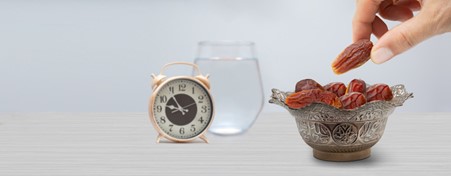
It’s that time of the year which calls for spiritual reflection, and self-control. Ramadan month is also a clarion call to exercise your self-control during fasting for your overall attention to your health and well-being.
Look at it this way: once in the entire year, you get the opportunity to detox your body and cleanse your system by taking on a healthier lifestyle with healthy benefits of fasting. The very act of fasting can have positive effects on the body, such as improved levels of insulin and a sense of agility and calmness that comes with feeling ‘light’ in mind, body and spirit.
Studies encouragingly show a gradual adoption of a healthier lifestyle across the Middle East, with nearly 75% of the population consuming fiber-rich foods, (a refreshingly marked departure from the past). People are now consuming at least five servings of fruits and vegetables a day currently.
What’s more, it’s even estimated that during this season, there’s an average weight reduction of at least about 1-2 kg, a very positive example of following a healthier lifestyle check.
But first: How do you define ‘Fasting’?
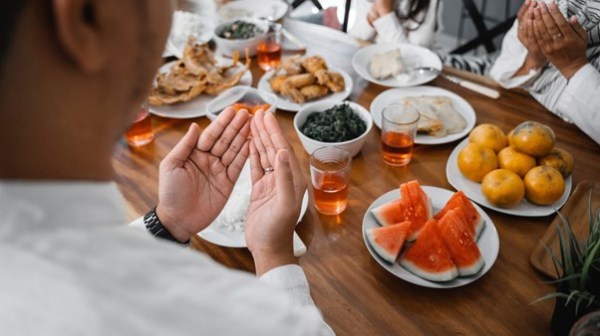
The classic definition of fasting is when you completely stop eating food for a specified time-frame to give your body the opportunity to maintain its natural equilibrium. The popular time frame of a fast is a window of 24 hours, which is an accepted ritual passed down through history and traditions. Then again, it varies across individuals and their ‘health capacity’ for fasting, with some sipping small cups of water or tea, at distant intervals.
What makes Fasting, beneficial?
Weight loss is one of the top reasons for fasting, apart from the religious angle associated with it across cultures. It has many health advantages too: like reducing the impact of chronic cholesterol that induces hypertension and blood pressure, rising blood sugar levels and diabetes apart from other severe health issues.
Here are two case histories of people who benefitted from fasting (names changed to protect their identities):
A 40-year-old resident and construction engineer in Sharjah, suffered from regular, painful headaches and constant fatigue, which he mistakenly assumed had to do with his site visits or being too much out in the open, during Ramadan. Our team of gastroenterologists at HealthHub Clinics noticed his lifestyle patterns during Ramadan, that spiked his sugar levels and blood pressure. Noor is a healthier man with balanced energy levels now, having adopted the customised lifestyle advice of the doctors in cutting out excess intake of red meats and sodas at late nights while staying well-hydrated.

A budding 23-year-old advertising copywriter in Dubai, who has always been a fitness freak and believer of Yoga, reinforces her belief in the power of fasting which she also recommends to her students in her fitness classes. Ramadan, she feels is the perfect time for those wanting to kickstart a long-time commitment to a better body and mind.
Rashida recommends light food from green tea for those breaking fasts during Suhoor and Iftaar, with a reasonable helping of more vegetables, nuts and dates, fish and fruits over oily foods saturated in high fat. She guarantees that such a nutritious switch ensures a sound quality of sleep which can be easily lost during this period while ensuing a better sense of well-being.

Staying Hydrated aids Healthier Fasting
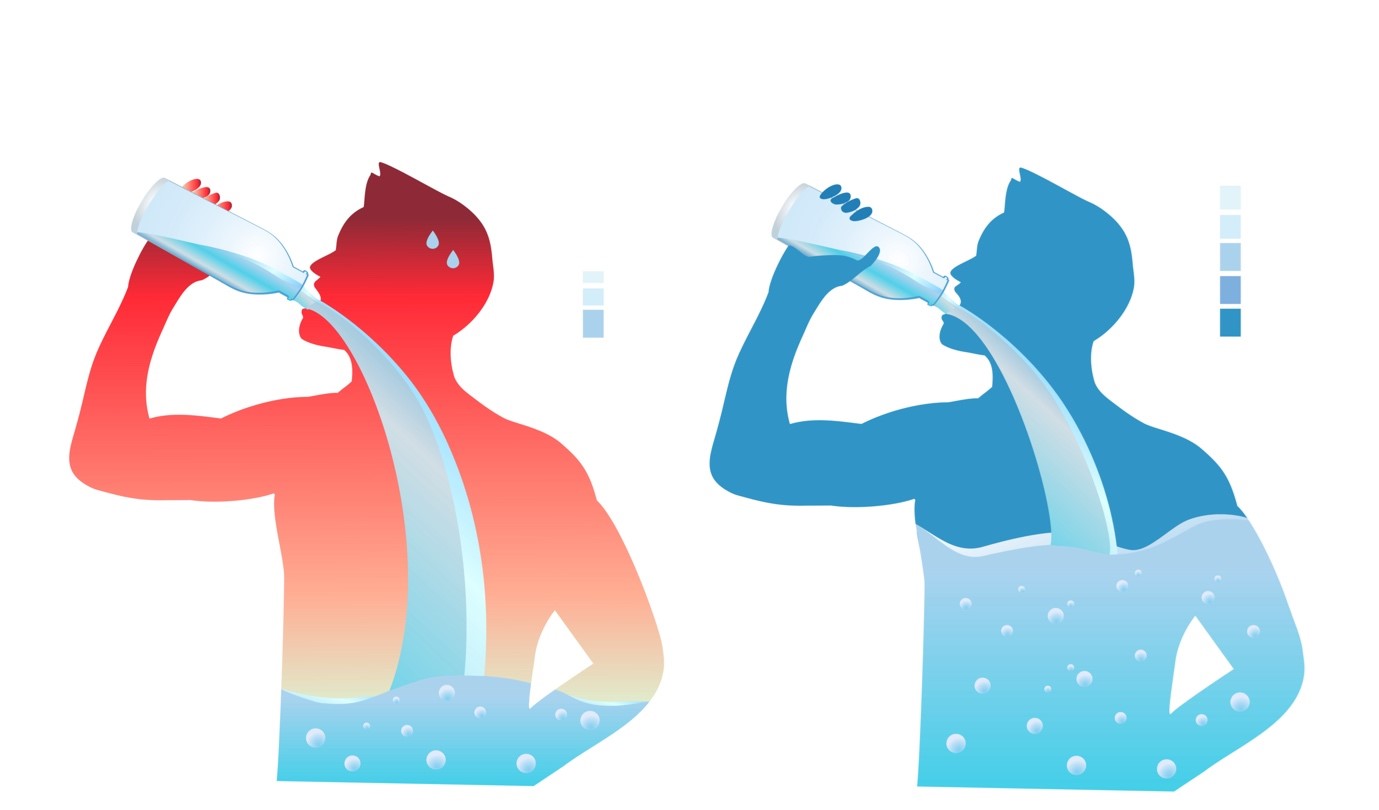
Watch out for Dehydration during fasting!
One of the biggest challenges people face during fasting is not being careful to hydrate themselves, which if ignored, can prove counter to the whole purpose of fasting itself! There are dizzying spells, nausea, vomiting, haziness, loss of focus and concentration, and fatigue at regular intervals that can be caused by dehydration.
If you are a chronic patient, it can also mess with your sugar levels, kidneys and the urinary tract, leading to infections and kidney stones. Even your skin starts feeling the severe effects of not drinking enough water. You can read more about hydration and kidney health here.

Skin attack! Dehydration causes skin rash & acne
How to prevent dehydration from affecting your skin
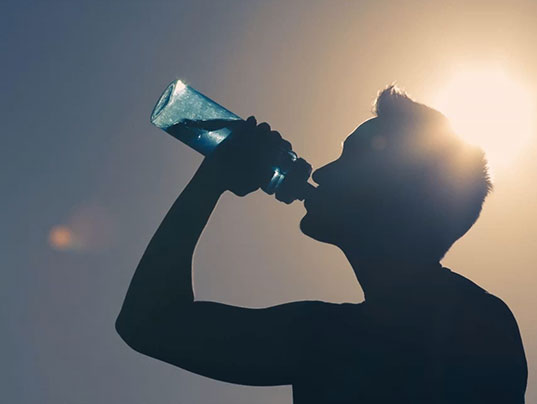
Hydrate!
Make sure to drink 8 glasses of water before fasting for the next day! Remember to also walk in the shade when out in the sun.
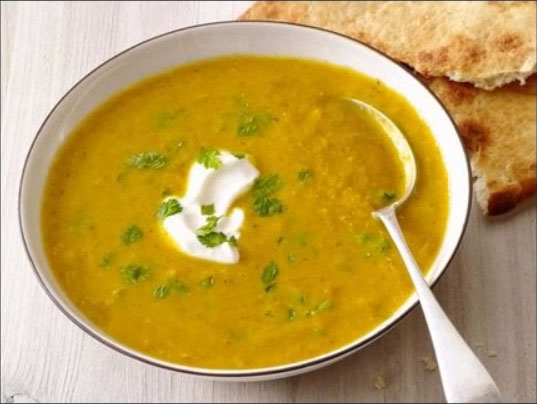
Break your fast
with water-based meals such as soup. Avoid excessive dairy products that cause acne.

Moisturize!
Wash your face at intervals as the skin loses hydration when fasting.
You can learn more about how to maintain your skin health during winter in our blog on winter skincare issues.
One of the biggest advantages of staying hydrated during fasting is that it ensures proper circulation through your body, flushes out toxins, keeps your kidneys healthy and maintains your body equilibrium. The proposed water intake during fasting that our doctors at HealthHub Clinics would recommend is in consuming 8 to 10 glasses of water at regular intervals during the night or during the day. Just remember that consuming the right volume of water between Iftar and Suhoor, results in an essential balance of fluid in your body for your organs to function properly while ensuring your overall well-being.
What to avoid:
Excess intake of syrupy juices or sodas that may momentarily refresh you but which in turn spikes up your sugar levels while having the reverse effect of dehydrating you from inside. A healthy diet of natural fruits from oranges to watermelons, or a cucumber smoothie ensure your liquid vitamins are in place to keep you healthy.
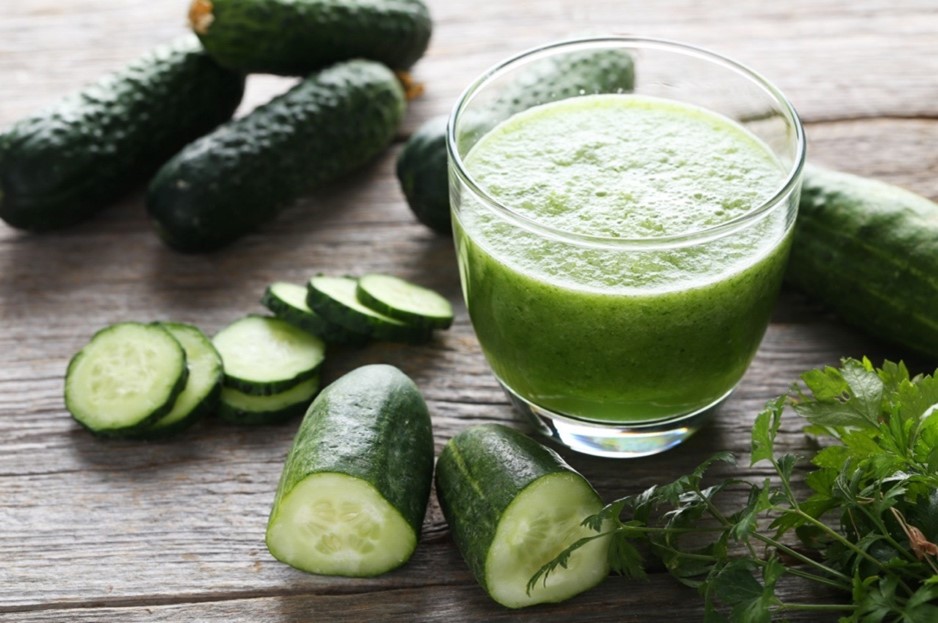
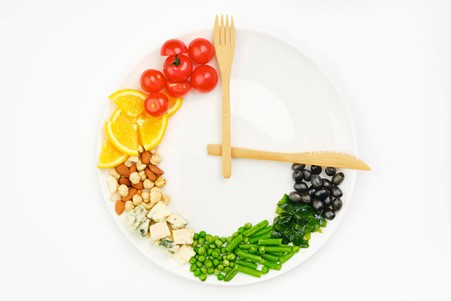
This is an ‘off-and-on’ kind of fasting technique designed to help people lose weight, and involves periods of total or partial abstinence from meals. It’s the best fasting way to lose weight. Then again, no two people’s body mass or requirement are ever the same when it comes to calorie count or even the duration of the fasting, so this involves a very customised approach.
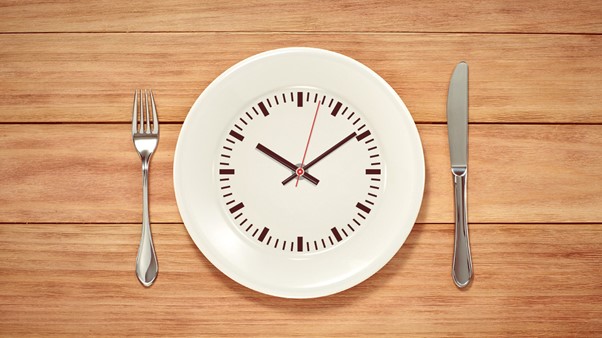
The 16 hour fast every day, which leaves an eating period of 8 hours, is called the 16:8 diet, and generally involves men fasting for 16 hours a day, while women fast for 14 hours.
People usually finish their evening meal by 8 p.m. and then skip breakfast the next day, not eating anything until the evening.
What’s interesting to note is that studies on intermittent fasting tested on animals reveal that an 8 hour feeding window actually protects people from liver disease, obesity, rash and diabetes.
Are you ready to try out this type of fasting? Here’s how you benefit:
- Get the H2O! Drinking up to 10 glasses of water without fail every day, helps you get your required dosage of electrolytes, sodium, and potassium chloride.
- Don’t let food call out to you! Breaking the foodie habit to avoid snacking temptations can be achieved by replacing them mentally in your head with plenty of distractions on fasting days. Like going out for a walk while listening to music on your ear pods or watching a movie or just reading a book!
- Give your mind it’s peace! This is where managing your energy that could be lost during fasting owing to too much strenous activity, comes into play! Go instead for activities or lighter exercises that are gentle on you, from yoga and quiet meditation to early morning deep breathing.
- Healthy calories please! Choosing the right kind of food which has calories you can burn while also ensuring you fuel up on your energy levels is so important during fasting. Go for protein-based and fiber-rich meals such as figs, walnuts, almonds, beans, lentils, eggs, fish, avocado, pomegranates and lean meats.
- No cheating: Did we mention, no oily or fried versions of the above, please, apart from that, low calorie foods, such as carrots, capsicum, and cucumber slices are cooler on your system (so say no to toppings such as salad oil or mayo).
- Wise choices only! Choose fruits with high water content, such as grapes and watermelon. Not only are these nutritious, they help maintain your blood sugar levels while contributing to providing you with the right vitamins and minerals to aid weight loss and promote good health.

- Get the taste without the calories! Make sure you season your meals with generous helpings of garlic, herbs, spices, or vinegar. These are great low-calories friends to have on any Ramadan recipe and are tasty while still staying healthy.
To know more about the right kind of diet during fasting that works for you, or for more tips on Ramadan, do visit or talk to our doctors at HealthHub Clinics on 8004322 today!








